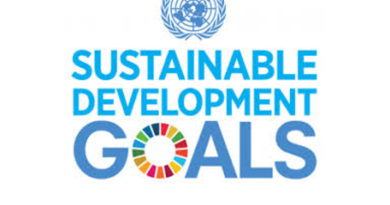Association of African Sustainability Practitioners (AASUP) trains SIGA on climate reporting and environmental, social and governance (ESG) compliance
The initiative supports Ghana’s efforts to achieve its Nationally Determined Contributions (NDCs) under the Paris Agreement and advances SDG targets on climate action and institutional capacity building. For SIGA, the training supports its ongoing effort to embed sustainability into its operations. The authority’s head of policy planning, research, and strategy
As Ghana reflects on a decade of progress under the Sustainable Development Goals (SDGs), the Association of African Sustainability Practitioners (AASUP) has stepped up efforts to help state institutions meet their climate obligations.
On Friday, 27 June 2025, the group organised a training workshop for the State Interests and Governance Authority (SIGA) to build capacity in Environmental, Social, and Governance (ESG) reporting and climate risk compliance. The session brought together SIGA officials and sustainability experts to explore global standards, regulatory frameworks, and performance-based reporting practices.
Speaking to Asaase News on the sidelines of the event, President of AASUP, Humphrey Tetteh, said the training formed part of a broader effort to shift national focus from climate awareness to meaningful action.
“Every company must now report on their climate-related activities, and SIGA, as a key regulator, should be equipped to lead. This is how Ghana can meet its global commitments to reduce emissions and build a sustainable future,” Tetteh stated.
He also mentioned that in order to develop a workforce with the necessary skills for the sustainability industry, AASUP and Accra Technical University have teamed up to launch accredited climate-related training programmes.
“We want to train professionals who are ready to act. The sustainability space is one of the most in-demand fields globally, and we can’t rely solely on traditional degree paths that don’t reflect the skills needed on the ground,” he said.
The workshop facilitator, Kwadwo Kwakye Gyan, who is Head of Risk and Sustainability Management at the Ghana Infrastructure Investment Fund, stressed the need for SIGA to ensure that institutions under its oversight comply with emerging global ESG standards.
“As regulator, SIGA must ensure there’s compliance with these frameworks. That’s the only way state-owned entities can remain accountable and globally relevant,” he said.
For SIGA, the training supports its ongoing effort to embed sustainability into its operations. The authority’s head of policy planning, research, and strategy, James Korsa Brown, said ESG indicators will soon be more deeply integrated into the performance contracts of state entities.
“We’ve already included green indicators in our performance contracts, but we’ll be expanding that to reflect ESG and climate action in a more comprehensive way. This will help align institutions with national and international targets,” he noted.
One participant described the training as timely and relevant, saying SIGA’s mandate places it at the heart of Ghana’s climate accountability framework.
“Ghana has signed on to global climate protocols, and SIGA must play a central role in ensuring those commitments are met. This training gives us the tools and understanding we need,” the participant said.
The initiative supports Ghana’s efforts to achieve its Nationally Determined Contributions (NDCs) under the Paris Agreement and advances SDG targets on climate action and institutional capacity building.
Elizabeth Akyemaa Yeboah for Asaase News
Source: asaaseradio.com




